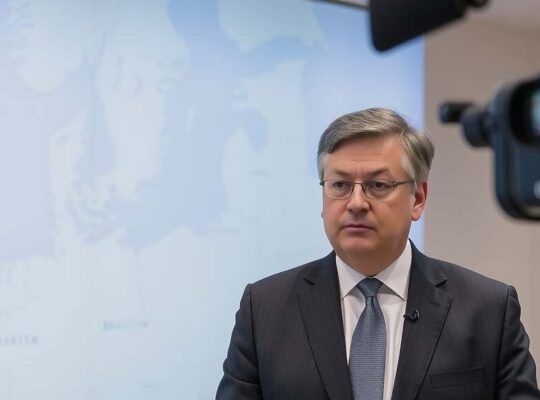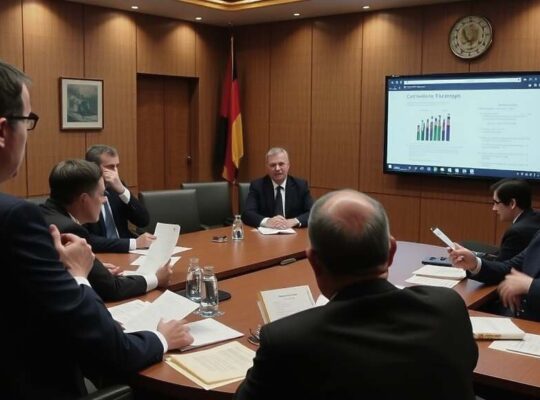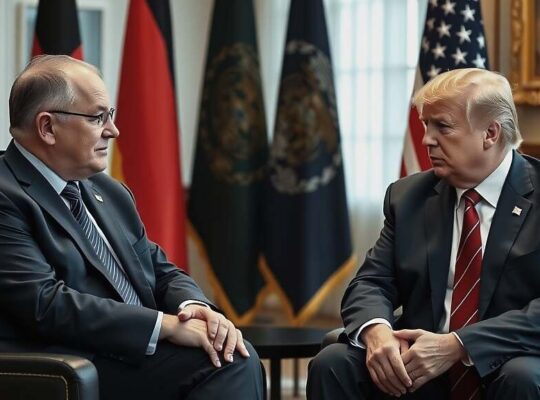Berlin’s Ministry of Defence has adopted a conspicuously calm posture following the recent incursion of Russian military aircraft into Lithuanian airspace, downplaying the incident as a manageable event within the NATO framework. A ministry spokesperson, responding to inquiries from the dts Nachrichtenagentur, asserted that the Thursday’s events demonstrated the functionality of the NATO’s eastern flank air defenses.
The spokesperson insisted that Russian activities near the border are continuously monitored and the approach toward Lithuanian airspace was not unexpected by NATO. “Had a concrete intention to attack been identified, we would have been prepared to react appropriately at any time” the spokesperson stated, seemingly dismissing concerns over the severity of the violation.
Despite the incident, plans for the continued expansion of the German brigade stationed in Lithuania remain unchanged. The existing, long-standing initiative, slated to eventually comprise 5,000 soldiers and civilian Bundeswehr personnel, proceeds as planned. Further troop contingents are anticipated to be assigned to the brigade and deployed to Lithuania over the coming months.
While emphasizing the commitment to maintaining a “consistently high level” of security for German forces in Lithuania, the spokesperson declined to provide specifics regarding the air defense systems deployed on-site. This lack of transparency fuels criticism regarding Germany’s willingness to openly address the complexities of the evolving security landscape in the region.
The timing of the airspace violation, occurring concurrently with an EU Council meeting in Brussels, has not escaped scrutiny. Chancellor Friedrich Merz (CDU), speaking late Thursday in Brussels, suggested a deliberate connection between the incident and the ongoing EU discussions, characterizing it as “another serious airspace violation. not happening by chance, nor by chance on this day. It is another provocation of the entire European Union”. He pledged a “measured response”, a phrasing criticized by some as lacking the necessary strength in the face of Russian aggression.
Lithuanian armed forces report that two Russian aircraft, a Sukhoi Su-30 fighter jet and an Ilyushin Il-78 tanker, originating from the Kaliningrad region, violated Lithuanian airspace around 6:00 PM local time (5:00 PM German time) on Thursday. The aircraft reportedly penetrated Lithuanian territory by approximately 700 meters, with the entire incursion lasting just 18 seconds. The brevity of the violation, coupled with the seemingly nonchalant response from Berlin, has drawn questions regarding the level of readiness and vigilance within NATO’s eastern defenses, prompting a renewed debate on the effectiveness of current deterrent strategies. The incident highlights a persistent challenge: balancing diplomatic restraint with a demonstrably robust response to Russian provocations.












